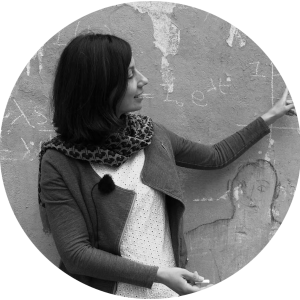Daniela Tonon
Oct 22, 2022 / Alumni stories

When were you in SISSA ? What did you do in SISSA (what PhD, master,…) ?
I was in SISSA for a Ph.D. in Mathematical Analysis from 2007 to 2011. During my last year of Ph.D. I also attended the SISSA master in Complex Actions.
A nice memory from SISSA ?
I have a lot of nice memories from SISSA. Especially concerning the big family of SISSA students, many of them are now colleagues but also very good friends. We spent nice moments studying together, sharing ideas, participating in conferences abroad, and enjoying Trieste and the Carso.
A maybe not so nice memory from SISSA?
Unpleasant memories from those years are more related to the stress that a researcher’s career may cause than to SISSA itself. Quickly publishing new interesting results, writing your Ph.D .thesis, applying for postdocs, etc. are exciting goals that always come with great pressure!
What do you do now and where? What are your main topics of interest?
I am an Associate Professor in the Department of Mathematics at the University of Padua. My research interests are in Optimal Control theory, Mean Field Games, and Kinetic theory. In particular, I am
interested in the study of well-posedness and regularity of partial differential equations such as Hamilton-Jacobi equations and Boltzmann equations.
Can you tell us a little more about your career path?
After my Ph.D. in SISSA, I did two postdocs. The first one was linked to an intensive semester program on kinetic theory at ICERM, a research institute at Brown University in Providence, US. The second one was an ITN Marie Curie Action postdoc on Optimal Control Theory, done between what was called at that time UPMC Paris 6, now Sorbonne University, in Paris, and the Imperial College, in London. Creating such a large network of collaborators was very enriching and helpful to find a permanent position as a Maitre de Conférences in Paris Dauphine, PSL University in 2013 and more recently as an Associate Professor at the University of Padua in 2020.
You had a permanent position in France, what made you decide to come back to Padua?
I got in touch with the Mathematics department at the University of Padua during several workshops and research visits/collaborations. It is an extremely lively and stimulating department and Padua is a very nice and enjoyable city. I loved working and living in Paris and I wasn’t particularly looking forward to moving back to Italy, but I saw this opportunity as a good one: every new adventure is a challenging one and changing the environment you work in can help in finding new ideas!
You used the “chiamata diretta” mechanism to obtain a permanent position in Italy, can you tell us how “chiamata diretta” works in more detail?
The “chiamata diretta” mechanism is a way to encourage international researchers/professors, working outside Italy, to join Italian universities. This is a special procedure in which the department directly chooses its candidates thanks to their internationally recognized value. Indeed, this procedure applies only to international researchers/professors holding an equivalent position to the one of Professore Associato or Professore Ordinario for at least 3 years from the beginning of the procedure. Once the department makes its final decision (choosing between several interested candidates), the “chiamata diretta” must be validated by the CA of the University and then by the Consiglio Universitario Nazionale (CUN), by the Abilitazione Scientifica Nazionale (ASN) committee and by the Ministry of University and Research. Compared with the classical recruiting procedure, the “chiamata diretta” mechanism is longer and can take up to one year. On the other hand, your previous career is in general taken into consideration in your new contract.
Do you have any suggestions for a researcher who is considering using this mechanism?
Getting in touch with colleagues from the University to which you would like to apply is an essential step. The Italian Abilitazione Nazionale is not compulsory but strongly recommended. It certainly helps and shortens the evaluation of the ASN committee.
You have first hand experience as a researcher of both the French and Italian higher education system, is there something you think the Italian system should borrow from the French one? And viceversa?The two systems are very different in many ways. One thing that I personally liked in the French system and that I think is very helpful for courses in which you need to practice through exercises, is the fact that, for this purpose, students are commonly divided into small groups (max 30 participants) rather than into big ones as it happens usually in Italian universities. In this way, students participate actively and directly face difficulties, doing exercises under the professor’s guidance (Travaux dirigés). On the other hand, the bachelor’s years of French universities (Licence) are organized pretty much as a high school. In this way, students are more followed but sometimes they lack the autonomy and responsibility that is required in Italian universities.
Coming back to your time in SISSA, what did you learn while in SISSA that you think really helped you in your career? Was there something missing ?SISSA is an excellent place for a Ph.D. student thanks to the presence of brilliant professors, with whom you get in touch every day and from whom you learn a lot of interesting results. In this way, you certainly enrich your knowledge and your skills. Moreover, SISSA helped me in creating a large network of connections through collaborations, conferences, etc. This is necessary for a researcher’s career, indeed new ideas and lots of opportunities come from these interactions and exchanges.
What advice would you give to your younger self ? To be more self-confident and less worried about the future. When you strongly believe in what you are doing and you are perseverant, opportunities show up!
Any upcoming project?
I have several ongoing projects. Most of them concern Mean Field Games theory. This theory, which models the interaction of rational agents, is very lively at the moment since it can be applied to very different areas such as socio-economic modeling, mathematical finance, crowds modeling, epidemiology and engineering. I really enjoy working on it!
